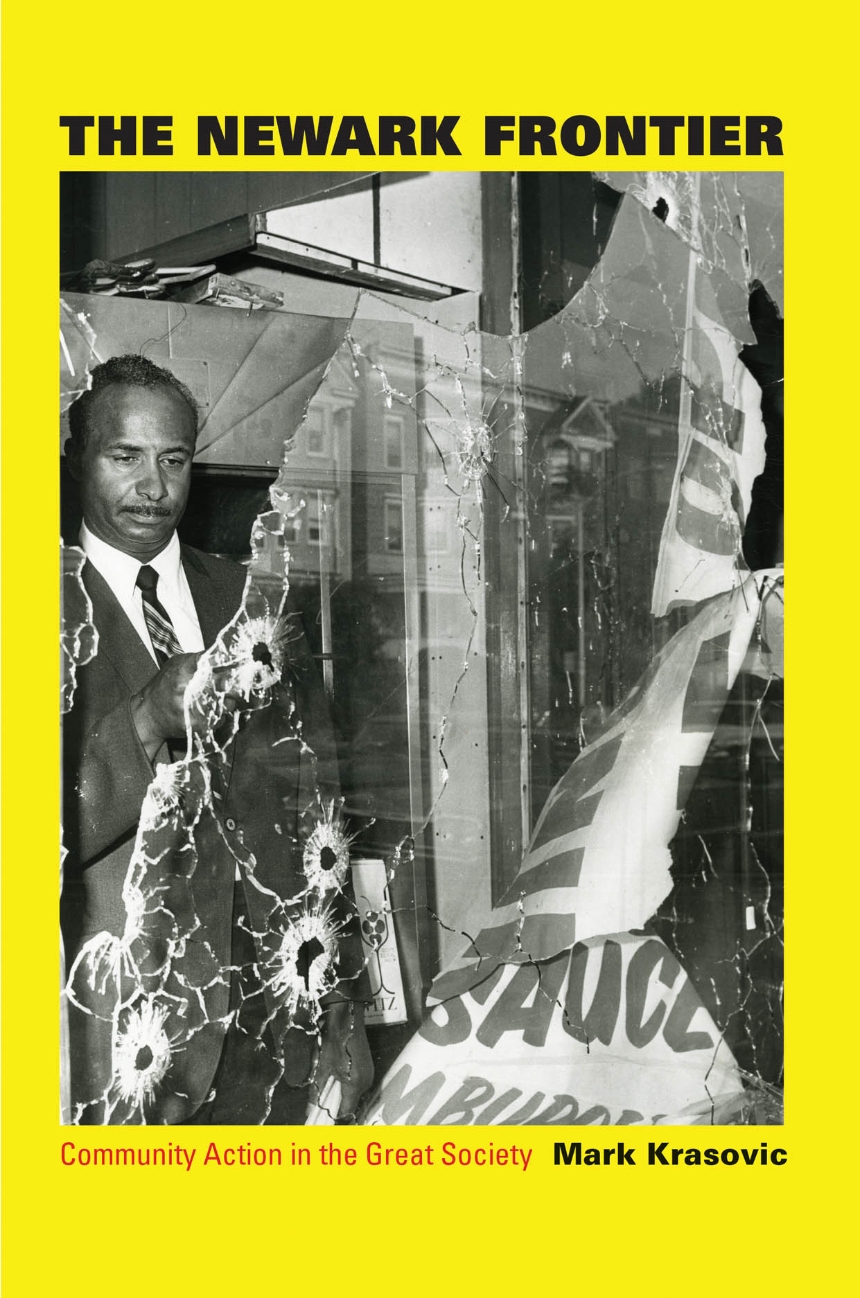The Newark Frontier
Community Action in the Great Society
To many, Newark seems a profound symbol of postwar liberalism’s failings: an impoverished, deeply divided city where commitments to integration and widespread economic security went up in flames during the 1967 riots. While it’s true that these failings shaped Newark’s postwar landscape and economy, as Mark Krasovic shows, that is far from the whole story.
The Newark Frontier shows how, during the Great Society, urban liberalism adapted and grew, defining itself less by centralized programs and ideals than by administrative innovation and the small-scale, personal interactions generated by community action programs, investigative commissions, and police-community relations projects. Paying particular attention to the fine-grained experiences of Newark residents, Krasovic reveals that this liberalism was rooted in an ethic of experimentation and local knowledge. He illustrates this with stories of innovation within government offices, the dynamic encounters between local activists and state agencies, and the unlikely alliances among nominal enemies. Krasovic makes clear that postwar liberalism’s eventual fate had as much to do with the experiments waged in Newark as it did with the violence that rocked the city in the summer of 1967.
The Newark Frontier shows how, during the Great Society, urban liberalism adapted and grew, defining itself less by centralized programs and ideals than by administrative innovation and the small-scale, personal interactions generated by community action programs, investigative commissions, and police-community relations projects. Paying particular attention to the fine-grained experiences of Newark residents, Krasovic reveals that this liberalism was rooted in an ethic of experimentation and local knowledge. He illustrates this with stories of innovation within government offices, the dynamic encounters between local activists and state agencies, and the unlikely alliances among nominal enemies. Krasovic makes clear that postwar liberalism’s eventual fate had as much to do with the experiments waged in Newark as it did with the violence that rocked the city in the summer of 1967.
384 pages | 21 halftones | 6 x 9 | © 2016
Historical Studies of Urban America
History: American History, Urban History
Political Science: Urban Politics
Reviews
Table of Contents
Introduction: Plotting the Great Society and the Urban Crisis in Newark
Part I: The Rise of Community Action
One / The Construction of Community Action in the Great Society
Two / Community Action Comes to Newark
Three / Convergence
Four / The Newark Police Department’s Great Society
Interlude: The Riots
Part II: The Commission Response to Rioting
Five / The Kerner Commission
Six / The Governor’s Commission
Seven / The PBA Commission
Part III: New Directions for Community Action
Eight / Law and Order
Nine / Departures
Ten / Control
Conclusion: Community Action and the Hollow Prize
Acknowledgments
Abbreviations Used in Notes
Notes
Index
Part I: The Rise of Community Action
One / The Construction of Community Action in the Great Society
Two / Community Action Comes to Newark
Three / Convergence
Four / The Newark Police Department’s Great Society
Interlude: The Riots
Part II: The Commission Response to Rioting
Five / The Kerner Commission
Six / The Governor’s Commission
Seven / The PBA Commission
Part III: New Directions for Community Action
Eight / Law and Order
Nine / Departures
Ten / Control
Conclusion: Community Action and the Hollow Prize
Acknowledgments
Abbreviations Used in Notes
Notes
Index
